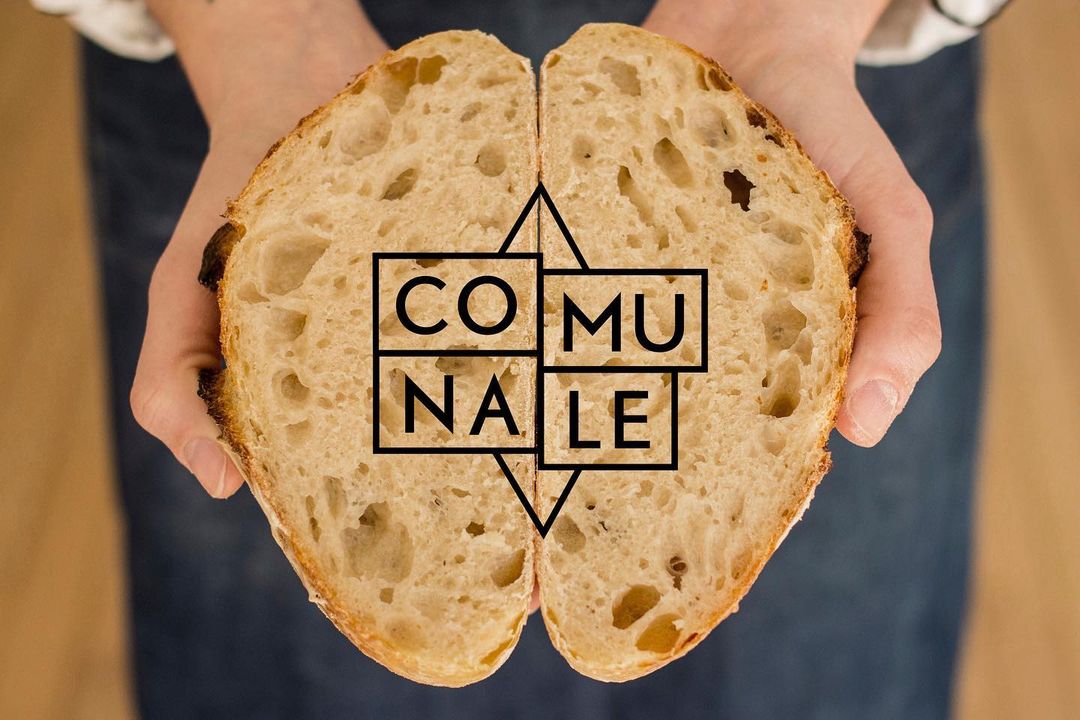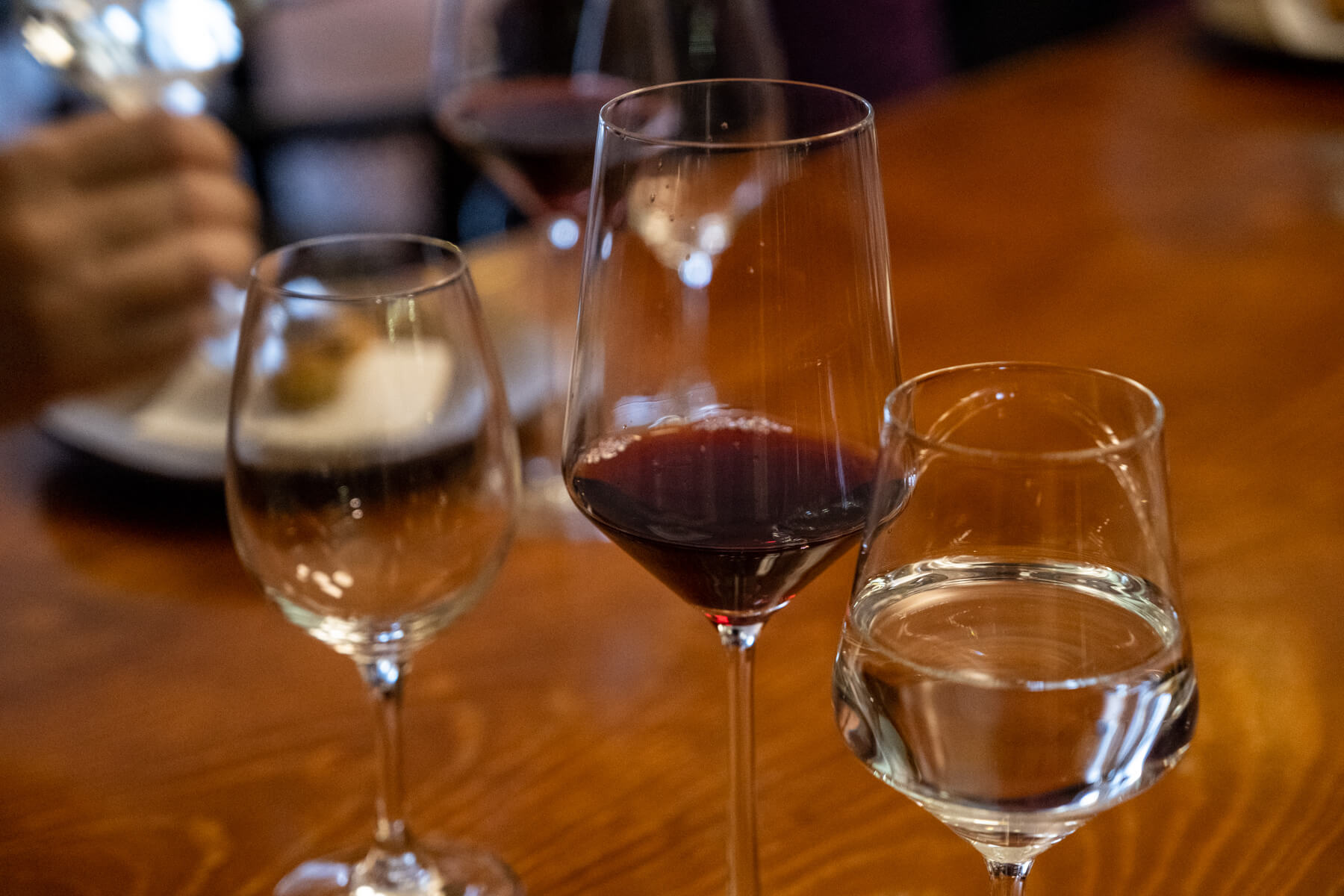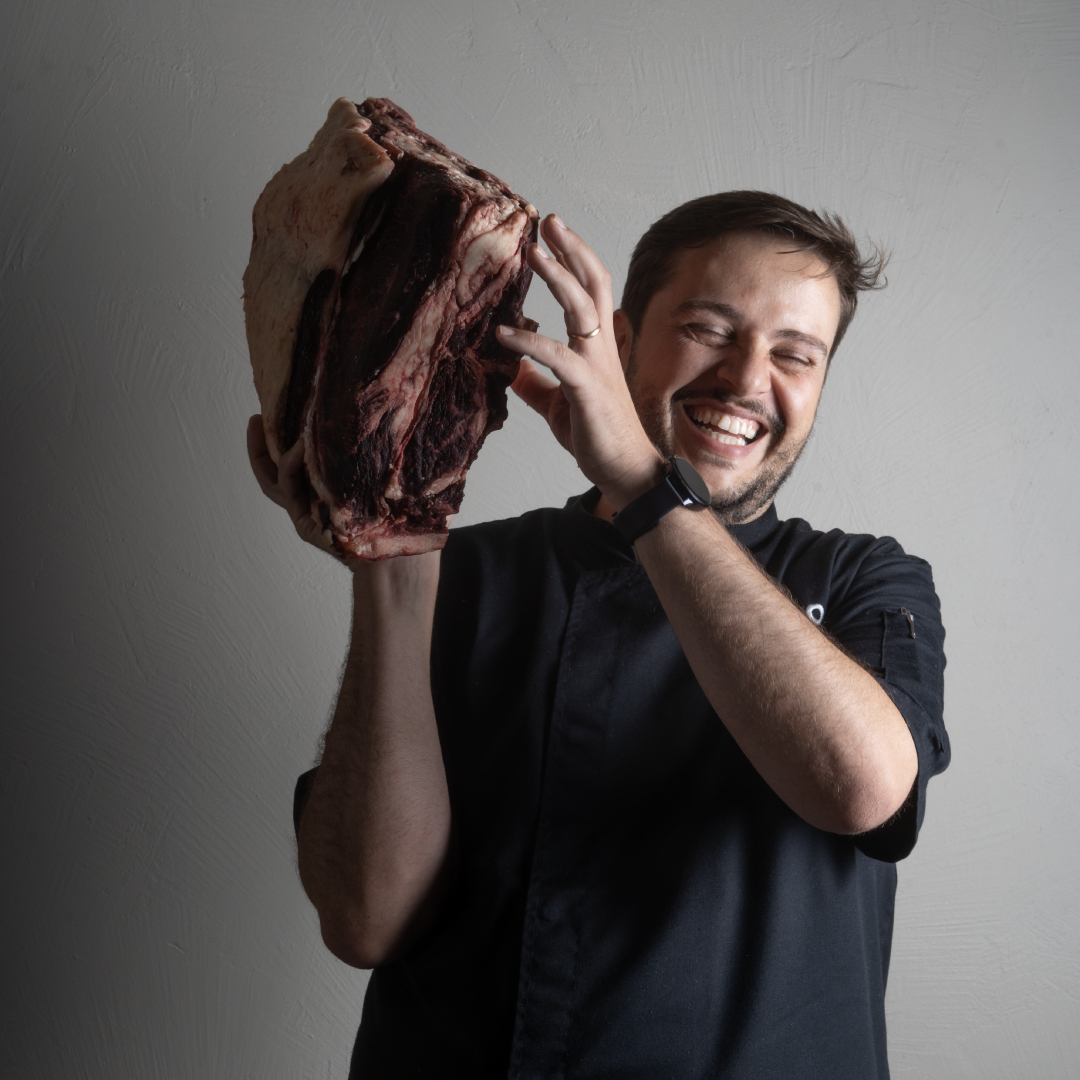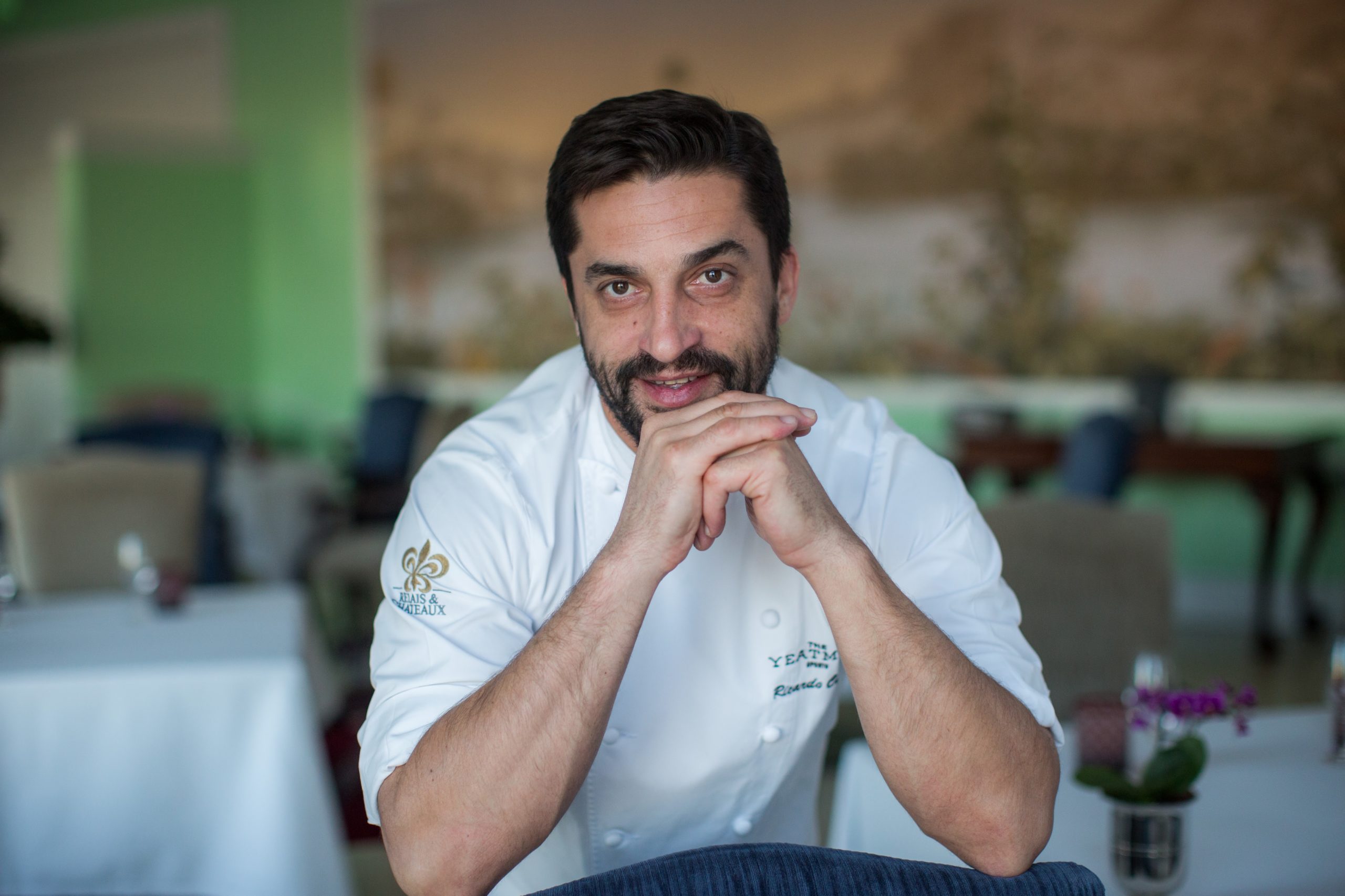
One Chef at a time – Meet Ricardo Costa, Chef at The Yeatman Hotel
This interview was conducted online during the pandemic, providing insights into the restaurant’s situation at that particular time. From the food he refuses to eat to his favorite region of Portugal and the top reasons to become a Chef, Chef Ricardo Costa reveals his thoughts and feelings about food. Continue scrolling to read the original interview below (in Portuguese).
What was your least favorite food as a child? Do you still hate it or do you love it now?
I was born and raised in Aradas, a small parish in Aveiro. Aveiro is undoubtedly one of the best cities in Portugal for food. I have fond memories of family meals, eating chanfana, suckling pig and soft eggs from Aveiro as dessert. Memories like these stay with us.
What I really didn’t like was eating broad beans or peas. But, as I grow up, I started to like it.
What is the one food you refuse to eat?
I don’t like fast food. I prefer hot dogs or the portuguese Prego.
We read somewhere that you were 17 when you wore an apron for the first time on a summer job. Today that’s your daily life. In your opinion, what are the top 3 great reasons to become a Chef?
Well, there are a lot of reasons to become a Chef. Chefs reach a certain level of “idolatry”, which is good because it is important to attract top talents and motivate people. Despite the pandemic context, the restaurant industry continues to be a growing sector. It is an area leveraged by tourism, but not exclusively. People are increasingly looking for different gastronomic experiences and there is plenty of room for new concepts and ideas.
I would also like to underline the importance of our cuisine – food is our flag and one of the things that make Portugal such a remarkable country. We have a unique gastronomic culture, access to products with excellent quality, given our geographical position, and we have tons of talent. Summing up, we’ve gathered all the conditions to place Portugal, more and more, as a gastronomic destination of excellence.
If you never became a chef, in what other ways would you use your creativity?
I rarely ever think about it. I’ve always been very determined to make my way. I am focused on my path and I try to continue to evolve in this direction.
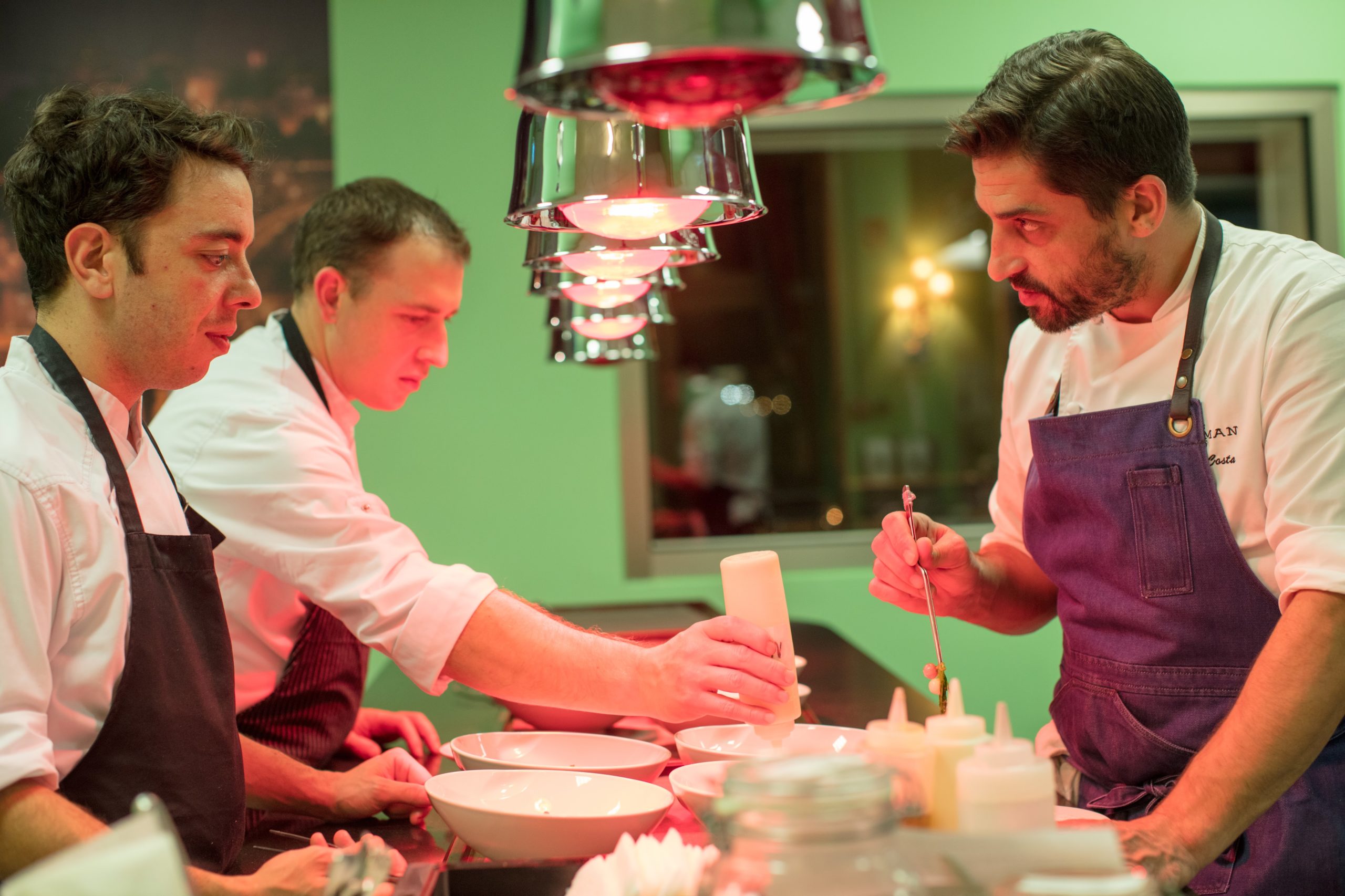
20 years of experience. The first half of your career as a Chef at Casa da Calçada, Vidago Palace, Sheraton and some experiences in Spain and London. The second half of your career as the Executive Chef at The Yeatman Hotel and two Michelin stars already on the menu. Are the Michelin stars a blessing or a curse?
They are a recognition. And if we see them that way, they are neither a blessing nor a curse. They are the result of a hard-working team with a vision and a concept. I cannot say that they are not a source of pride – they truly are -, but our ambition is to constantly work to evolve ourselves.
Many define your cuisine as “sophisticated Portuguese cuisine”. Do you believe that chefs have a role in safeguarding the national identity? And if so, in what way?
Yes, we do have that obligation. From my point of view, gastronomy must reflect the country’s culture and identity. We must value the original recipes from each region, we must value the fish and seafood from our coast, the traditional canned food and so many other Portuguese table traditions. We have the privilege and responsibility to continue this legacy.
Is there a chef you admire the most? Who and why?
I have close friendships with many Chefs with whom I share ideas and we do participate in events together. There are some Chefs who kind of “opened the way” for Michelin Stars in Portugal and who I admire, such as Chef Dieter Koschina.
What is your management style? And has it changed over the years?
At The Yeatman, I am responsible for several outlets: the Gastronomic Restaurant, which is a two Michelin-starred restaurant, The Orangerie restaurant, the Bar, events, etc. There are several specialized teams, from bakery and pastry to room service and all work with the same level of demand and focus. We are aligned with a common goal: to evolve consistently.
What’s your favorite region of Portugal?
In my opinion, Beira Litoral is one of the most complete and richest regions in the country. We have sea and river (and a natural reservoir as well!). Here we can catch the best fish and seafood. On these lands, we produce very high-quality meat and vegetables. We have Bairrada wines. We have authentic traditions, such as canned food, dried cod, soft eggs, oh well… You are all invited to find out Beira Litoral!
And if we asked the same question to your taste buds, what would the answer be?
They would certainly agree.
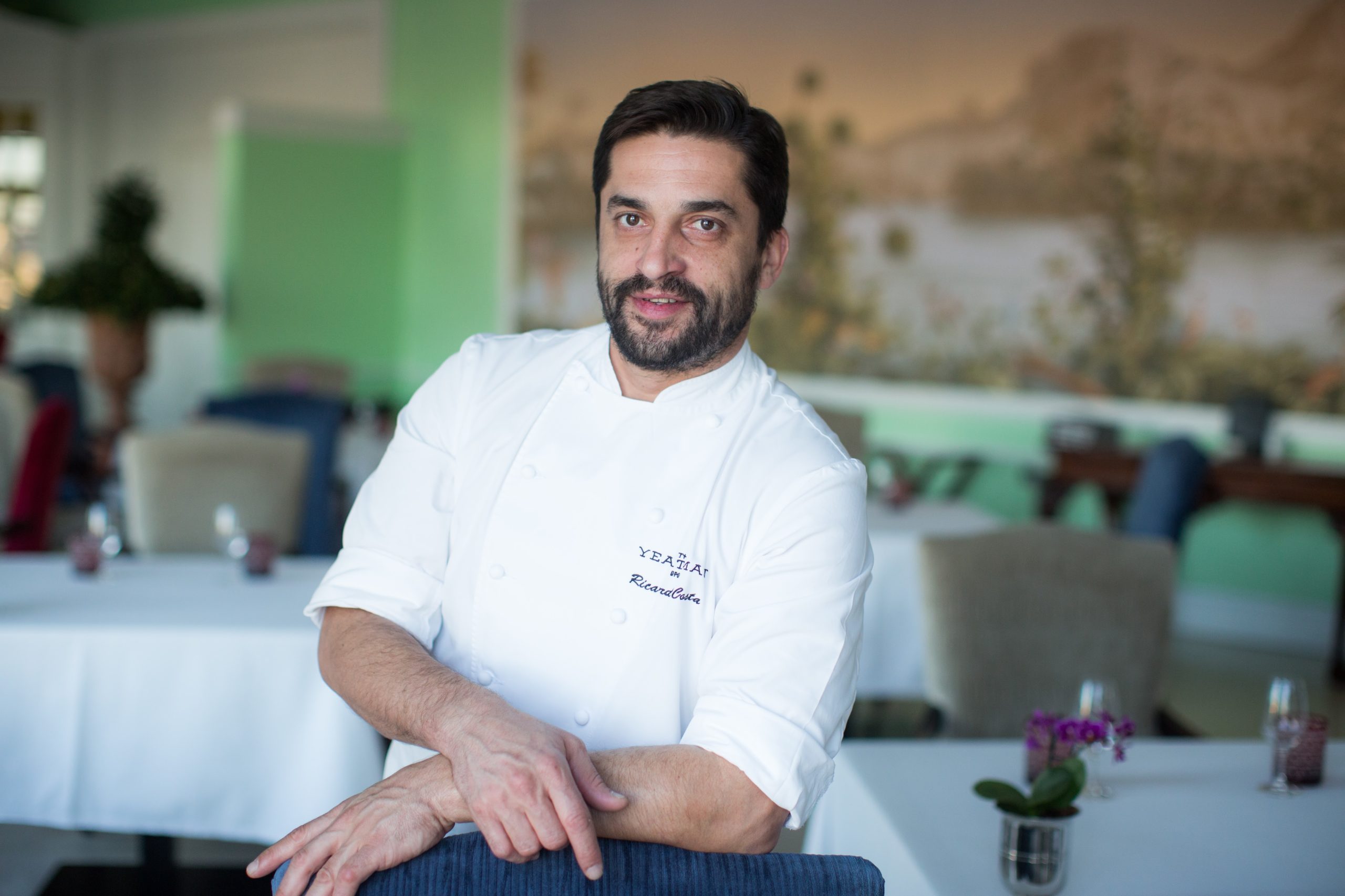
What is the one thing (tool, spice, ingredient) you could not live without?
Olive oil.
If Porto was a culinary dish, what would it be? How would it taste?
The Portuguese coast provides us with enormous wealth. We have the best fish and seafood and we know how to prepare it like no one else, with the simplicity of Mediterranean cuisine. Just pair this with loose rice or some steamed vegetables and a glass of good white wine and I assure you that you’ll have a memorable meal.
When are you happiest at work?
I’ve been working at The Yeatman for more than 10 years. And what makes me happier is that it is a constant challenge. I always try to evolve, to achieve more, to do better, to keep surprising myself and others. This is my biggest motivation.
Let’s end with a drink. You’re sitting down in your fantasy bar. What’s in your glass?
I’m the Executive Chef at The Yeatman Hotel, which is a wine hotel. Therefore, wines are key to a great customer experience and service. It is a great pleasure to answer this question and mention the Port wine, which is an ex-libris of our country and more precisely of Vila Nova de Gaia, where my restaurant is located. Port wine is one of the best wines in the world and is part of our history and identity. I would choose a Taylor’s Vintage 2017.
PORTUGUÊS: You can read the original interview below.
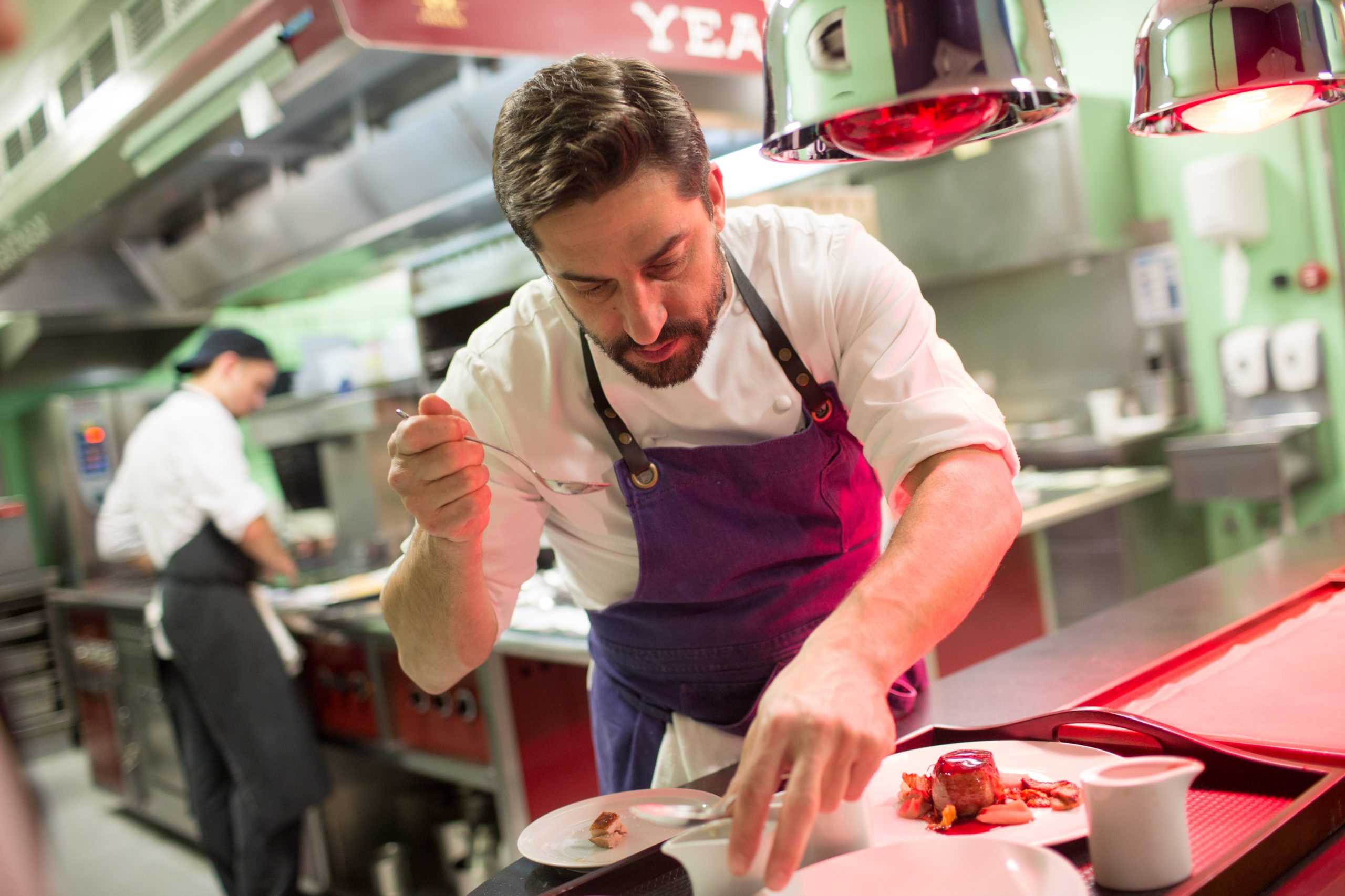
Começamos por viajar até à sua infância. Como era o pequeno Ricardo Costa enquanto apreciador de comida? Existia algo que se recusava a comer?
Nasci e cresci numa freguesia de Aveiro, Aradas. Não tinha uma relação especial com a comida, mas a região de Aveiro é sem dúvida uma das mais gastronómicas do país. Tenho memórias das refeições em família, da chanfana, do leitão, das sobremesas de ovos moles. É algo que fica connosco. O que eu não gostava mesmo era de comer favas nem ervilhas. Mas, depois em adulto, passei a gostar.
Ainda há algo que se recuse a comer hoje em dia?
Não gosto de fast food. Prefiro um bom prego ou um cachorrinho.
Lemos algures que tinha 17 anos quando vestiu um avental pela primeira vez. Na altura, tratava-se de um trabalho de verão para ganhar uns trocos nas férias. Hoje é o seu dia-a-dia. Na sua opinião, quais são as 3 principais razões para alguém decidir ser um Chef?
Bem, hoje em dia há muitos motivos para ser Chefe. Há uma certa “idolatria” da profissão, o que é bom porque é importante atrair bons talentos e pessoas motivadas. É evidente que a gastronomia, apesar do contexto que vivemos, continua a ser uma área em crescimento em Portugal, alavancada pelo turismo, mas não só. As pessoas procuram cada vez mais experiências gastronómicas diferentes e há muito espaço para novos conceitos e ideias. Também gostaria de sublinhar a importância da gastronomia como bandeira de Portugal no mundo. Temos uma cultura gastronómica única, acesso a produtos de excelência, dada a nossa posição geográfica, e temos muito talento. Por isso, reunimos as condições para que Portugal se afirme cada vez mais como destino gastronómico de excelência.
Se não tivesse seguido este caminho, de que outra maneira acabaria a usar a sua criatividade?
Não penso muito sobre isso. Sempre fui muito determinado. Estou certo e focado no meu caminho e procuro continuar a evoluir neste sentido.
20 anos de carreira. A primeira metade pela Casa da Calçada, o Sheraton e experiências em Espanha e Londres. A segunda metade à frente do restaurante The Yeatman e duas estrelas Michelin no cardápio. Considera que as estrelas Michelin são uma benção ou uma maldição?
São um reconhecimento. E se as virmos dessa forma, não são nem uma bênção, nem uma maldição. São resultado de um trabalho, de uma equipa, de uma visão, de conceitos que se criam. Não posso dizer que não são um motivo de orgulho, claro que sim, mas a nossa ambição é trabalhar para continuar a evoluir, a criar.
Muitos definem a sua culinária como “cozinha portuguesa sofisticada”. Acredita que os chefes de cozinha têm um papel na salvaguarda da nossa identidade? De que maneira?
Temos essa obrigação. Ou seja, a gastronomia, como a vejo, deve refletir a nossa identidade e cultura enquanto país. Devemos valorizar as receitas de cada região, os peixes e mariscos da nossa costa, as conservas e tantas outras tradições portuguesas à mesa. Nesse sentido, somos privilegiados e é importante dar continuidade a esse legado.
Existe algum chef que admire? Quem e porquê?
Tenho muitos Chefs com os quais mantenho uma relação próxima, partilho ideias, participo em eventos… Há alguns Chefes que abriram caminho para as Estrelas Michelin em Portugal e que são pessoas que admiro muito profissionalmente, como o Chefe Dieter Koschina.
Qual é o seu estilo de gestão de equipas? E sente que esse estilo mudou ao longo dos anos?
No The Yeatman, estou responsável por vários outlets, ou seja, não apenas pelo Restaurante Gastronómico, que é o premiado com duas Estrelas Michelin, como também pelo restaurante The Orangerie, Bar, eventos, etc. São várias equipas especializadas, da padaria e pastelaria ao room service e todas trabalham com o mesmo nível de exigência e de foco. O nosso objetivo comum é evoluir com consistência e nessa visão, todos colaboram e todos fazem parte.
Qual é a sua região favorita de Portugal?
Para mim, a Beira Litoral é uma das regiões mais completas e mais ricas do país. Temos mar e rio (e ria!), de onde pescamos os melhores peixes e mariscos. Temos terra, onde produzimos carnes de altíssima qualidade e legumes. Temos os vinhos da Bairrada. Temos tradições, como a conserva, o bacalhau seco, os ovos-moles, enfim. É uma região que convido todos a descobrir.
E se colocássemos a mesma pergunta às suas papilas gustativas, qual seria a resposta?
Concordariam.
Existe algum ingrediente, condimento ou utensílio de cozinha sem o qual não consegue passar?
Um bom azeite.
Se o Porto fosse um prato, qual seria? E saberia a quê?
Portugal tem na sua costa uma enorme riqueza. Temos dos melhores peixes e mariscos e sabemos prepará-los como ninguém, com a simplicidade da cozinha mediterrânea. Basta acompanhar com um arroz solto ou uns legumes ao vapor e um bom vinho branco e temos uma refeição memorável.
O que o faz mais feliz no seu trabalho?
Estou no The Yeatman há 10 anos. E o que me faz mais feliz é que seja um desafio constante. Procuro estar sempre a evoluir, para conseguir, conseguirmos, fazer mais, melhor, para continuar a surpreender. Isso é a minha maior motivação.
Vamos terminar com uma bebida. Está sentado num bar e segura um copo. O que está lá dentro?
Estando eu à frente do restaurante de um hotel vínico, a questão dos vinhos assume sempre uma grande importância na nossa experiência e no nosso serviço. Por isso é com todo o gosto que respondo a essa pergunto, destacando claro, o vinho do Porto, que é um ex-libris do nosso país e mais precisamente de Vila Nova de Gaia, onde se encontra o meu restaurante. É um dos melhores vinhos do mundo e faz parte da nossa história e da nossa identidade. Escolheria um Taylor’s Vintage 2017.
